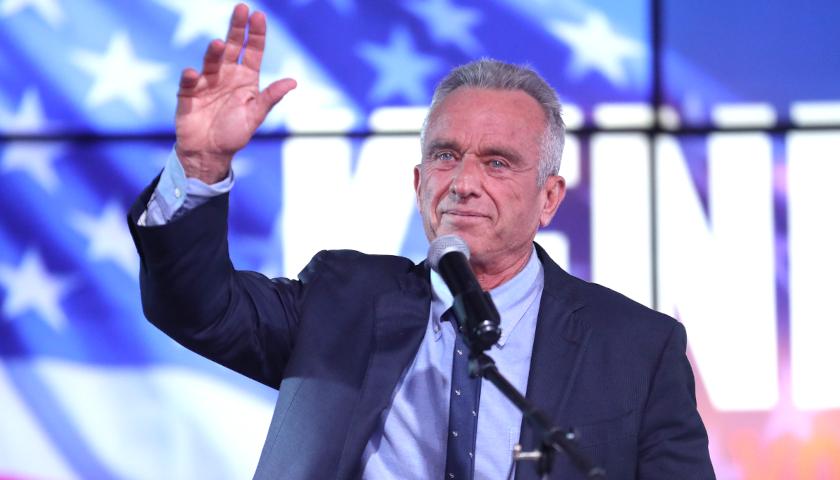Tuesday, a federal court in Pennsylvania issued a declaratory judgement, citing violations of the U.S. Constitution to strike down Democratic Governor Tom Wolf’s authority to close businesses, issue stay-at-home orders and limit gatherings.
Although the decision is not binding in Ohio it sets precedent that other judges may reference.
Gyms, restaurants, sports businesses, water parks and dance studios are some of the businesses that have filed lawsuits against the Ohio Department of Health and Governor Mike DeWine.
In May, Lake County Common Pleas Court Judge Eugene Lucci said the director of the Ohio Department of Health had “no statutory authority to close all businesses” and that the director had “acted in an impermissibly arbitrary, unreasonable, and oppressive manner without any procedural safeguards.”
Following the ruling, plaintiff gyms and fitness centers were ordered to reopen.
Again in Erie County, this time in June, Court of Common Pleas Judge Roger Binette ruled in favor of a plaintiff waterpark that brought suit against the state for business restrictions.
Judge Binette said that the health director’s orders “violated the separation of powers that exists in our constitution” as the orders gave one, unelected official the power to make rules and enforce criminal consequences.
The judge went on to say that criminalizing a non-criminal activity for order violations “extinguished” due process rights.
In late July, Ashland County Common Pleas Court Judge Ronald Forsthoefel called state orders that cause the revocation of a restaurant’s business license a denial of “civil liberties, including the right to earn a living and operate a commercial enterprise, without due process of law.”
Judge Forsthoefel also called into question the capriciousness of the state’s mask mandate, saying that any exception to the order brings into question the nature of the emergency that warrants the mandate.
In this case the County Prosecutor Chris Tunnell recused himself from representing the local health department (which found the restaurant in violation) saying that he could not represent the plaintiff because he didn’t see a defense that wouldn’t be frivolous.
Warren County Common Pleas Judge Timothy Tepe heard the case involving sports businesses that had been restricted.
Judge Tepe allowed the sports businesses to move forward without the more onerous restrictions placed on contact sports, saying that there were arbitrary considerations guiding the different rules for contact versus non-contact sports – an “unreasonable restriction.”
Despite these rulings from Ohio’s judiciary, Governor DeWine and the Ohio Department of Health continued to pump out orders involving bars and restaurants, schools, social gatherings and sports.
Given Ohio rulings and the federal ruling out of the federal district court in Pennsylvania, the reporter for WMFD-TV, and Managing Editor of The Ohio Star asked Governor DeWine the following question during the COVID press conference on Tuesday, September 15:
“Governor, yesterday a federal judge in Pennsylvania struck down Governor Wolf’s shutdown and business closure orders in that state.
The judge said, “even in an emergency, the authority of government is not unfettered. The liberties protected by the Constitution are not fair-weather freedoms — in place when times are good but able to be cast aside in times of trouble.” The judge’s decision was based upon federal constitutional considerations, so although at this point the decision is persuasive, not binding, on Ohio, it could end up having implications here.
Governor, a simple but important question today. You’ve said that wearing masks, abiding by business restrictions and honoring limits on social gatherings is the way for Ohioans to buy or earn their freedom. Do you believe that in the United States freedom is something that citizens must earn – or do you agree with the federal judge that constitutional freedoms are granted unconditionally to everyone, at all times – not just when it is convenient?”
Governor DeWine’s answer seemed to downplay the validity of state orders, the power of government officials to dictate what Ohioans can do and the inability of government to decide on human rights.
Well we have a wonderful Constitution. We are blessed with the Constitution that we have. We are blessed with the liberty that we have. I would go back to what some of our founders said – these basic rights do not come from government, these basic rights come from God. So I don’t think you and I, Jack will quarrel on that.
What happened in Pennsylvania, I don’t know. I don’t know anything about the case. I don’t know what their statute says; so I’m not going to comment on that.
But liberties that we have, the rights that we have, protected by our Constitution…I do not think it’s unfettered…I don’t think that there’s unlimited, my power or any elected official’s power is unlimited – at all.
There’s probably more you and I agree on than you might think.
Regardless the Pennsylvania state statutes, the case was heard and decided in the U.S. District Court by Judge William Stickman – a federal decision based on federal constitutional law.
Particularly involved in the decision were the First Amendment and the Fourteenth Amendment.
Judge Stickman said the Pennsylvania orders restricting gathering were unconstitutional, a violation of the right to assemble under the First Amendment.
The stay-at-home orders and business orders violated the due process clause of the Fourteenth Amendment.
The business closures also violated the equal protection under the law clause of the Fourteenth Amendment.
_ _ _
Jack Windsor is Managing Editor and an Investigative Reporter at The Ohio Star. Windsor is also an Investigative Reporter at WMFD-TV. Follow Jack on Twitter. Email tips to [email protected].
Photo “Gov Tom Wolf” by Gov. Tom Wolf CC2.0.





